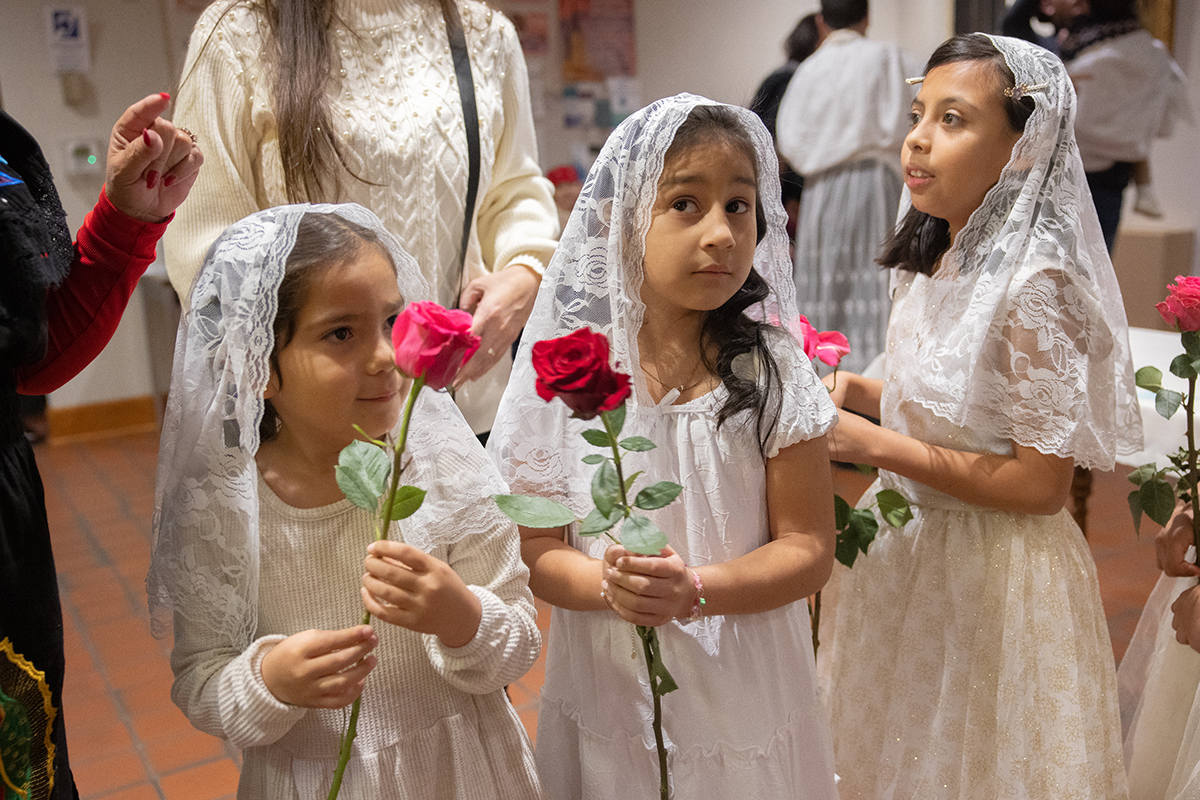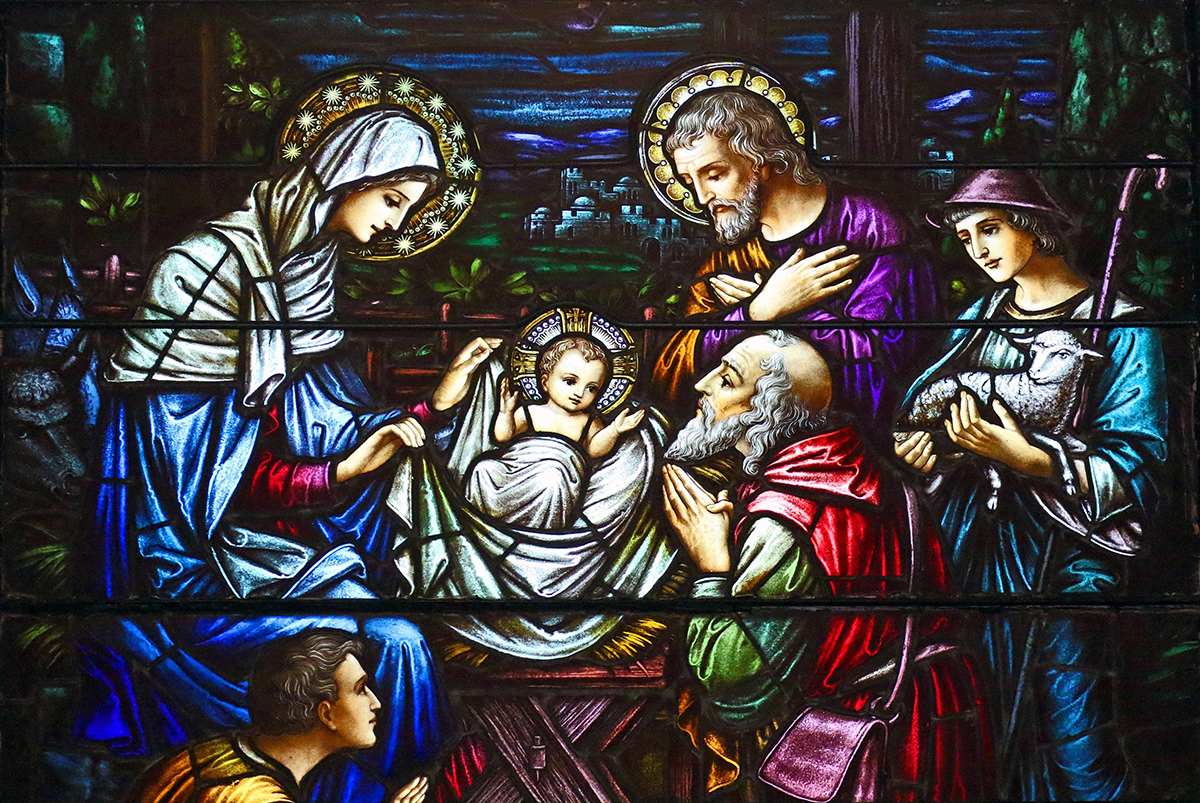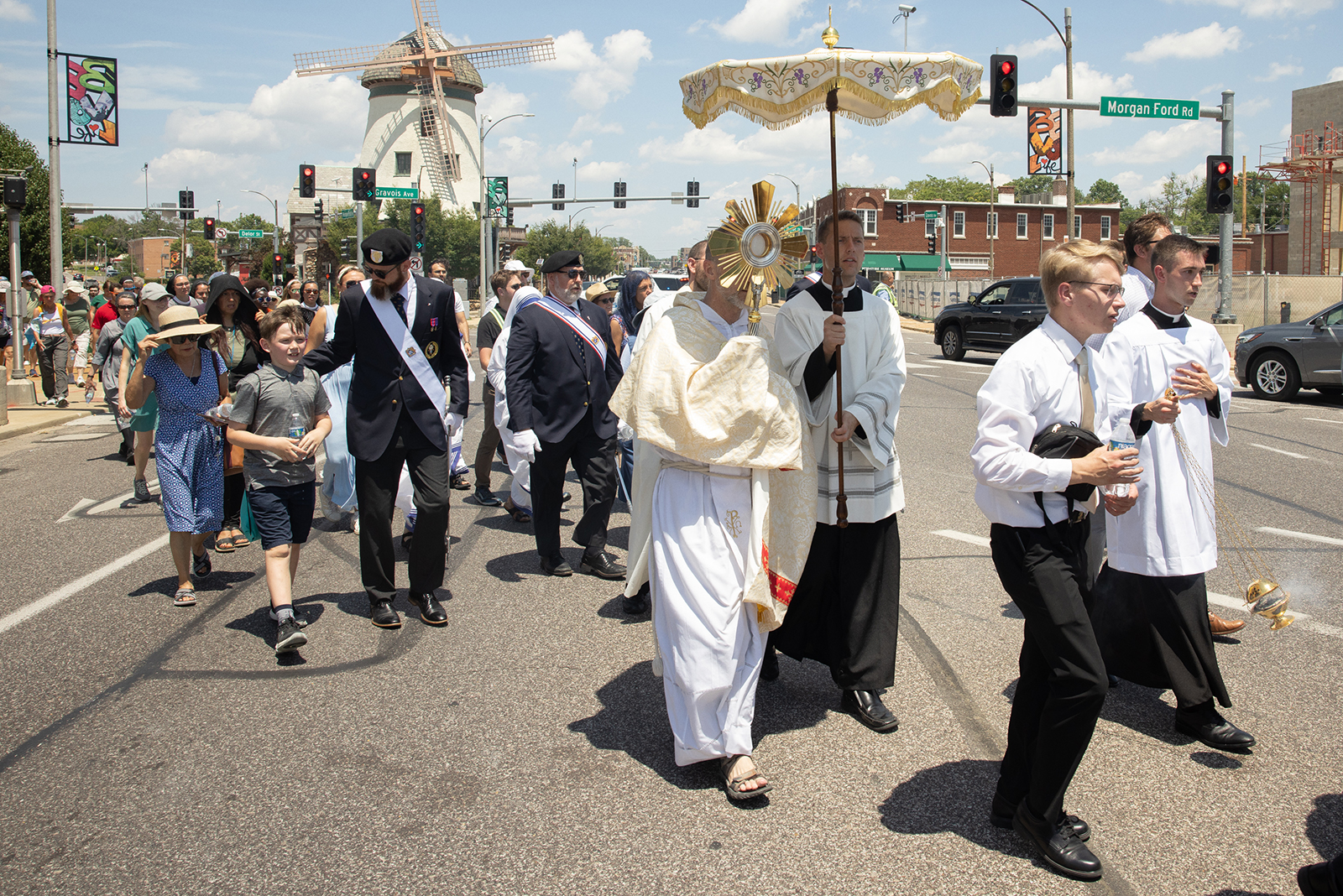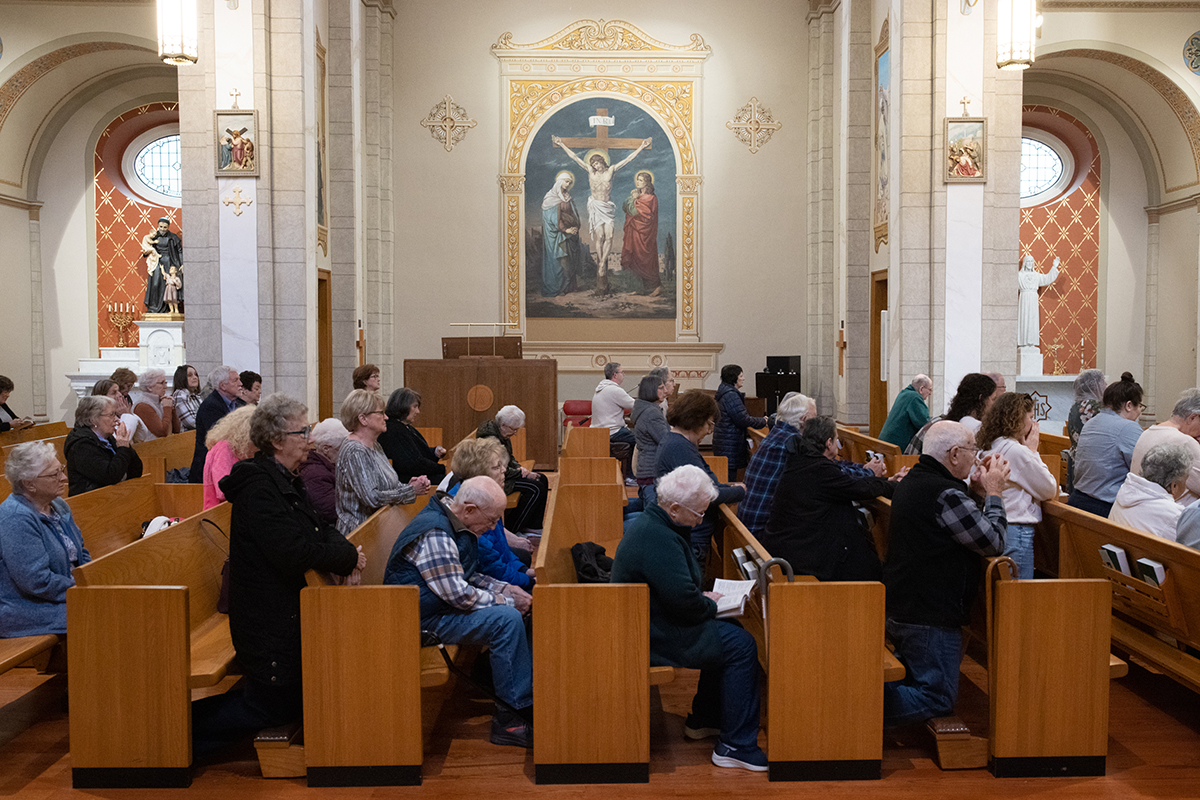Writing, gardening unraveled the mystery of God
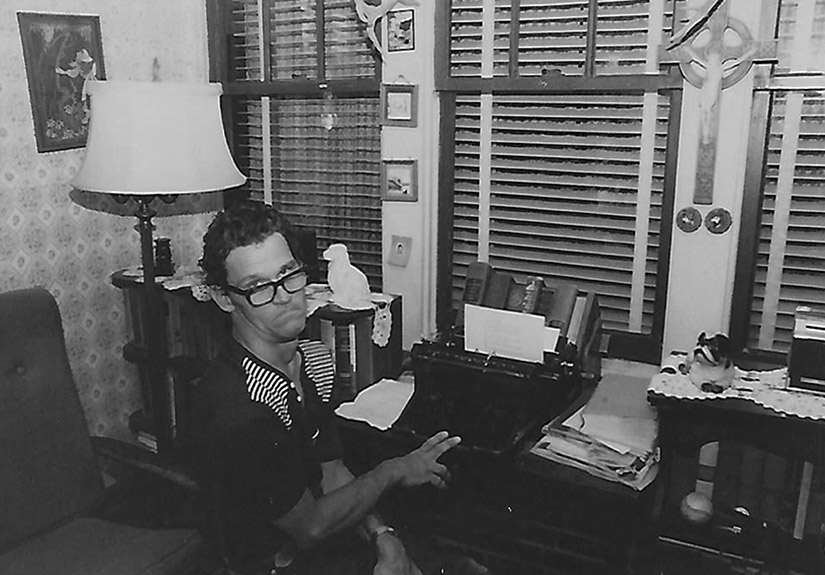
John Groebl, who had severe cerebral palsy, encouraged others to look beyond limitations to see what can be achieved
John R. Groebl’s family knew they were called to play a role in furthering his purpose in life.
John was motivated and guided by the question of “Why did God make me?” He related to the answer found in the Baltimore Catechism: “God made me to know Him, to love Him and to serve Him in this world and to be happy with Him forever in heaven.”
Family members said he was diagnosed with severe cerebral palsy. is parents, other family members and friends cared for him. Despite physical limitations, he found a calling in gardening and writing. He used a little red wagon to slowly inch around the garden and encounter the mystery of God. His handwriting was unreadable, so he learned to use a typewriter. He used his left hand to hold his right wrist, guiding a finger to type one letter at a time.
After John died in 2013, his family found ways to spread John’s message of the dignity of all life and looking beyond limitations to see what can be achieved.
‘Deep faith’
Sister Louise Benecke, SSND, a second cousin to John, said that after his death at age 83, she felt a “call to conscience” to help more people become aware of John’s “deep faith and searching of who he was, and especially why God made him with all of these problems he had. John himself, in his deep faith and spirituality, felt that God called him to speak to the importance of a person and that he was called to write and witness to that personhood, made in the image and likeness of God.”
He explored in his writings how people with disabilities have a purpose and calling, Sister Louise said. “He was called to speak to the mystery of God in the life of handicapped persons” and that each person relates to the dignity of life, she said. “He looks at that through abortion, for example, and in different parts of his own experience.”
John’s dedication to his purpose — witnessing to his value, God’s love for him and God’s gift of strength — helped him break through some of his limitations, Sister Louise said. Some of his poems were published in New Voices In American Poetry, American Poetry and elsewhere, and won awards in poetry contests.
Spiritual words

The call to spread John’s message after his death came to his family in the compilation of some of his poems into a book called “Why Did God Make Me? The Spiritual Words of a Sparkled Eyed Man with Cerebral Palsy.” All proceeds benefit programs for people living with disabilities in central and eastern Missouri through UCP Heartland.
Mary Ann Hutcherson of Immaculate Conception Parish in Dardenne Prairie, John’s cousin, returned to St. Louis with her husband, Mark, in 2015. Their return and connection with Sister Louise sparked the effort to publish Mark’s writings. She recalled that John lived for a brief time at St. Joseph’s Hill Infirmary in Pacific, and the priests there helped John fine-tune his writing.
Oscar J. Groebl, the son of another of John’s cousins, said the book project pulled family members together. Catholicism is important to the family, but because of John’s disability, Oscar added, “it was hard for him to fit into the traditional faith pattern. But he always had a strong belief in God but also a healthy challenging of God and why did God make him with everything he had going against him. In his poems, he challenges people to think about themselves and why things are the way they are — to look beyond the limitations to the bigger picture and what can be achieved in spite of that.”
John also had a way of relating to people that made them feel welcome to approach him, and his example taught his friends and relatives to never give up despite challenges and to ask for help when needed, Oscar Groebl said. “Knowing him challenged me to think about things through the eyes of someone else. It made me a better person.”
A priest’s concern
John’s desire to receive Communion is a prime example of his faith. John’s difficulty in speaking was an impediment to providing him with the catechesis needed to prepare to receive the sacrament, even though various priests visited the family home, Sister Louise said.
John was 18 when a young associate pastor at Epiphany Parish in south St. Louis, Father Paul Kaletta, came to his parents’ house to visit John’s newborn nephew. John, who attended a public school, wrote later that he was concerned about his salvation because he hadn’t received First Communion. His mother mentioned this to Father Kaletta, as she had to many other priests from the parish previously.
A few months later, Father Kaletta called to set up the first of 10 weekly sessions of religious instruction with John that culminated in his First Communion at Epiphany Church.
Sister Louise noted that Father Kaletta saw the deep faith John had. It was a priceless time for John, she said, adding that “there’s something so beautiful about his longing, his believing and hoping that at some point he would be given the privilege to receive Jesus.”
‘Why Did God Make Me?’
UCP Heartland is the beneficiary of book sales from “Why Did God Make Me?”
Offering employment, family support, residential, adult day and early childhood development programs, UCP Heartland serves people with a broad range of diagnosis — physical, developmental and behavioral.
Programs and services advance the independence of children and adults living with disabilities in central and eastern Missouri.
The agency assists people with a spectrum of disabilities including autism, cerebral palsy, Down syndrome, epilepsy, muscular dystrophy and traumatic brain injury. For more information, visit www.ucpheartland.org.
“Why Did God Make Me” is available by contacting RedWagonPublishing@gmail.com; the book is in stock at Pauline Books & Media, 9804 Watson Road in Crestwood. It also is available from Amazon via on-demand printing at www.stlouisreview.com/jtb.
Cerebral palsy
Cerebral palsy (CP) is a group of disorders that affect a person’s ability to move and maintain balance and posture. It’s the most common motor disability in childhood. Cerebral means having to do with the brain. Palsy means weakness or problems with using the muscles. CP is caused by abnormal brain development or damage to the developing brain that affects a person’s ability to control his or her muscles.
The symptoms vary. A person with severe cerebral palsy might need to use special equipment to walk, or might not be able to walk at all and might need lifelong care. A person with mild CP, on the other hand, might walk a little awkwardly, but not need any special help. Cerebral palsy doesn’t get worse over time, though the symptoms might change over a person’s lifetime.
There is no cure for cerebral palsy, but treatment can improve the lives of people who have the condition. It’s important to begin a treatment program as early as possible.
Centers for Disease Control and Prevention
John R. Groebl’s family knew they were called to play a role in furthering his purpose in life. John was motivated and guided by the question of “Why did God … Writing, gardening unraveled the mystery of God
Subscribe to Read All St. Louis Review Stories
All readers receive 5 stories to read free per month. After that, readers will need to be logged in.
If you are currently receive the St. Louis Review at your home or office, please send your name and address (and subscriber id if you know it) to subscriptions@stlouisreview.com to get your login information.
If you are not currently a subscriber to the St. Louis Review, please contact subscriptions@stlouisreview.com for information on how to subscribe.

